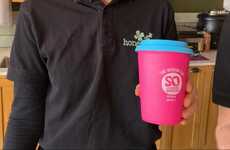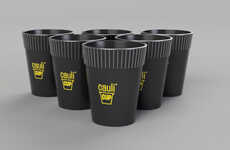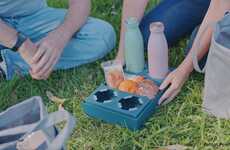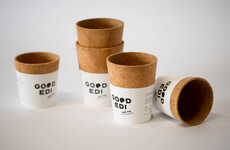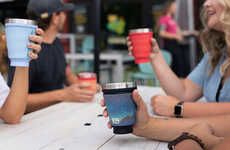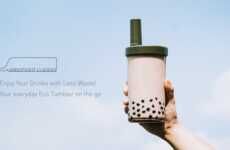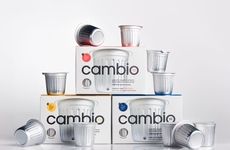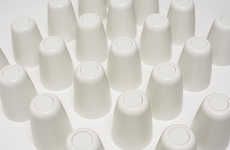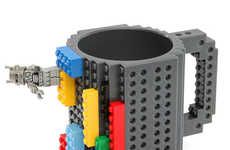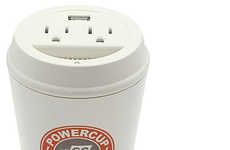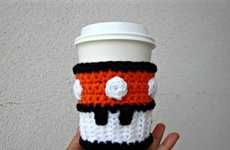
The Keepcup Creates a Caffeinated Way to be Eco
Kim Hutchinson — July 3, 2009 — Eco
References: keepcup.au
You’ve got the beans sorted (free trade and organic, of course), but if you’re still using a take-away paper or plastic cup, it’s time to rethink your take away coffee. The answer to your troubles is the Keepcup!
Made from polypropylene (the safest food grade plastic), it’s light and unbreakable. At the end of its life, it can be recycled. It uses industry-standard sizes (in Australia) so it will be welcomed at any café outlet. It’s practical, an easy way to reduce waste, and stylish to boot--what more could be better for you and your coffee fix?
Made from polypropylene (the safest food grade plastic), it’s light and unbreakable. At the end of its life, it can be recycled. It uses industry-standard sizes (in Australia) so it will be welcomed at any café outlet. It’s practical, an easy way to reduce waste, and stylish to boot--what more could be better for you and your coffee fix?
Trend Themes
1. Sustainable Coffee Cups - The KeepCup's success opens up opportunities for other sustainable coffee cup brands and alternatives to plastic.
2. Disposable Waste Reduction - Society becoming more aware of environmental impact. Therefore, coffee shops and retailers alike can innovate through the reduction of disposable products, such as cups.
3. Sustainable Packaging Solutions - As humans become more eco-conscious, the trend towards reusable, plant-based, and biodegradable packaging alternatives will continue to increase and offers potential for disruptive innovation.
Industry Implications
1. Food and Beverage - With a focus on reducing disposable takeaway coffee cups, the food and beverage industry can engage consumers through offering incentives to bring their own cups, sustainable packaging and reducing coffee cup waste.
2. Plastic and Polymer Production - As the trend continues towards sustainable coffee cup options, there is a great opportunity for innovation in the development of new, plant-based or biodegradable plastics that can be used for food-safe packaging alternatives.
3. Retail - Retailers can look to incorporate more sustainable products within their stores, promoting environmentally friendly merchandise, and reduce their own paper and plastic usage to support the reduce in disposable waste trend.
2.6
Score
Popularity
Activity
Freshness


